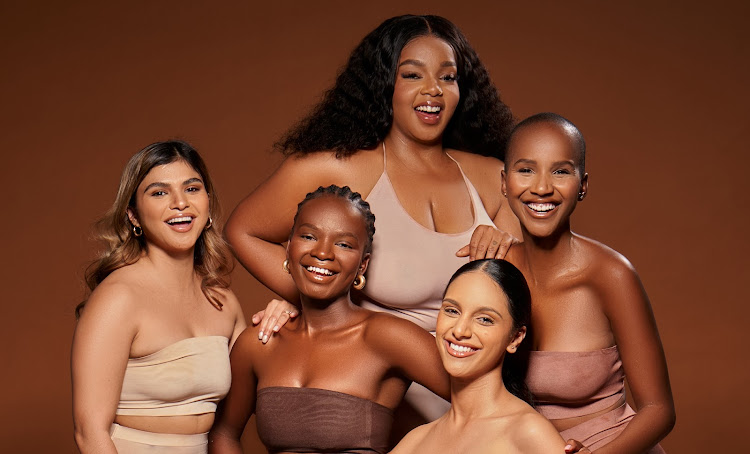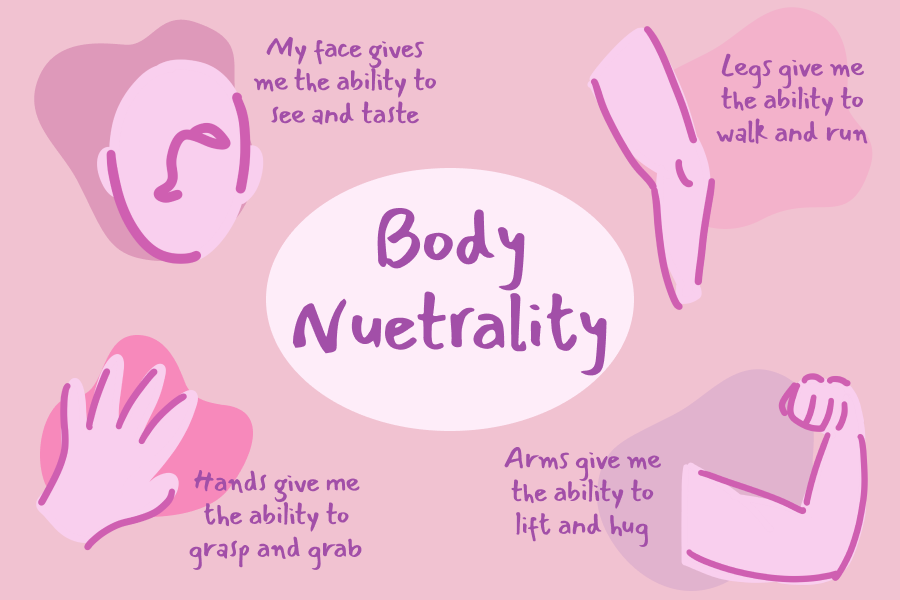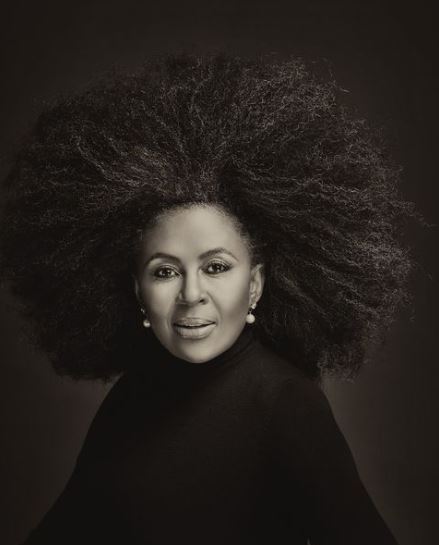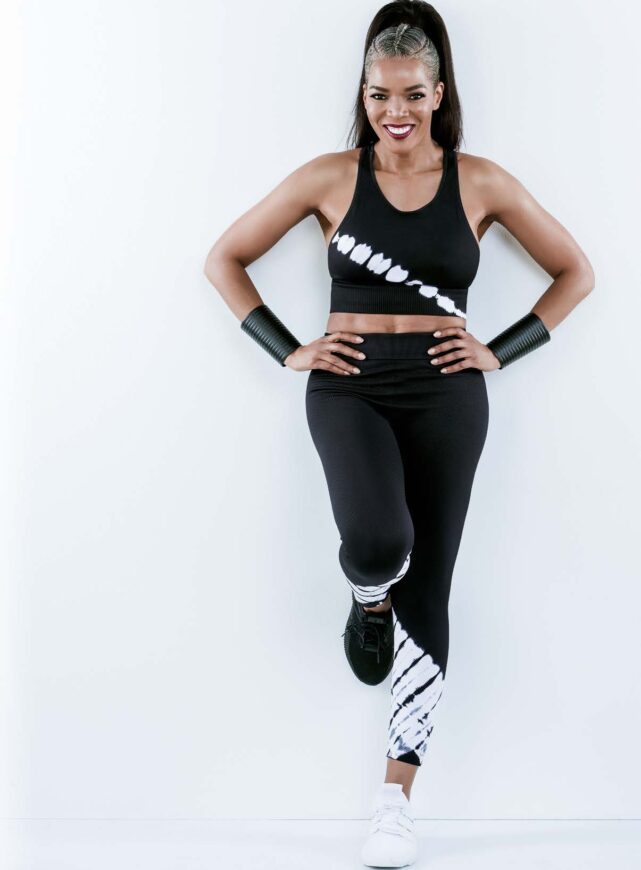From a young age, women are bombarded with unrealistic beauty standards, making it no surprise that many go to extremes to chase beauty and delay the aging process. Loving your body and feeling comfortable in your own skin can be complex and challenging; we all have days when we don’t feel our best. But how about when we start noticing signs of aging? Does our body image change overtime? Body image develops slowly over time and is influenced by cultural and environmental responses.
Concerns about body image and appearance, while often associated with youth, are not exclusive to the young. Our appearance and relationship with our bodies evolve as we age, but body image concerns persist. Contrary to what we might expect in our youth-obsessed culture, maintaining a positive body image doesn’t necessarily become harder with age. Research shows that female body dissatisfaction does not increase with age; it tends to remain stable or decline slightly over our lifetime. So, how can we embrace body positivity as we age? The key lies in focusing more on body neutrality.
Body positivity vs. body neutrality

Body positivity is a social movement that gained popularity on social media in the early 2010s. It encourages individuals to embrace and celebrate their bodies, regardless of size, shape, or age. It promotes the idea that all bodies are inherently beautiful and worthy of love and respect in an effort to improve body image. The body positivity movement aims to challenge societal norms and beauty standards that often marginalize those who do not fit the traditional mold.
However, as the body positivity movement gained momentum, it faced criticism for continuing to emphasize physical appearance, albeit in a more inclusive way. By focusing heavily on loving every aspect of one’s physical appearance, the movement inadvertently keeps the conversation centered on how we look. This further reinforces the idea that how we look is the most important thing about us; this is where body neutrality comes in.
While body positivity emphasizes loving and celebrating our bodies, body neutrality encourages a more balanced and neutral perspective. It focuses on the functionality of the body rather than its appearance, promoting a mindset where we appreciate our bodies for what they allow us to do rather than how they look. Body neutrality can be particularly beneficial as we age because it reduces the pressure to always feel positive about our bodies. It acknowledges that it’s okay to have neutral feelings about our appearance and that our self-worth is not tied to how we look. This perspective can be liberating, allowing us to focus on other aspects of life that bring us joy and fulfillment.

Life is way too short to spend another day at war with yourself
- Anonymous -
Tips on how to love the skin you are in at every age
As ever-changing human beings, there will be days when we love our bodies and other days when self-love feels like a bit too much to ask. Although body neutrality was designed to address the challenges of the body positivity movement, there are advantages to adopting a perspective that incorporates elements of both approaches. Embracing body positivity and body neutrality throughout the aging process requires intentionality and practice. Here are six tips to help you love the skin you are in at every age:
Embrace changes
Aging brings about physical changes, and it’s important to embrace them rather than resist them. View wrinkles, gray hair, and changes in body shape as symbols of a life well-lived. Each line and mark on your body tells a story and is a testament to your experiences and resilience. Embracing these changes with a positive mindset can help you develop a deeper sense of self-acceptance and confidence.
Focus on health, not appearance
Shift your focus from appearance to health. Prioritize activities that make you feel good and promote your well-being, such as regular exercise, a balanced diet, and getting adequate sleep. Engage in physical activities that you enjoy, whether that’s walking, dancing, swimming, or yoga.
By focusing on how these activities make you feel rather than how they make you look, you can cultivate a healthier and more positive relationship with your body.

Practice self-compassion
As you age, it’s important to be gentle with yourself and to acknowledge that changes in your body are natural. Instead of criticizing yourself for not meeting societal beauty standards, practice self-compassion by speaking kindly to yourself and appreciating your body for all it does for you.
Celebrate your body’s strengths and abilities
Take time to appreciate and celebrate what your body can do. Make a list of activities that your body allows you to enjoy, such as hiking, gardening, or pursuing hobbies.
Perspective is everything, by focusing on your body’s strengths and abilities, you can cultivate a sense of gratitude and appreciation for all that your body does for you rather than fixating on its appearance.
Engage in mindfulness practices
Mindfulness practices, such as meditation and yoga, can help you develop a more positive and accepting relationship with your body. These practices encourage you to be present in the moment and to observe your thoughts and feelings without judgment.
By incorporating mindfulness into your daily routine, you can become more aware of negative self-talk and learn to replace it with more positive and compassionate thoughts.

Surround yourself with positive influences
The people and media you surround yourself with can significantly impact your body image. Choose to engage with content and individuals who promote body confidence and diversity. Follow social media accounts that celebrate all body types and avoid those that perpetuate unrealistic beauty standards.
It’s also important to surround yourself with friends and family who support and uplift you, and who appreciate you for who you are, not how you look.

Aging is a natural part of life, but it can be scary when we start to see the signs of it affecting our bodies. While it may not be realistic to love your body all the time, you can still appreciate it for all that it can do. Practice self-love when possible, and on days when loving your body feels too challenging, focus on self-acceptance. Embracing body neutrality throughout the aging process can therefore help to transform your relationship with your body and enhance your overall well-being; Remember, your worth is not determined by your appearance.

